Sheffield's steel-making history unearthed
- Published
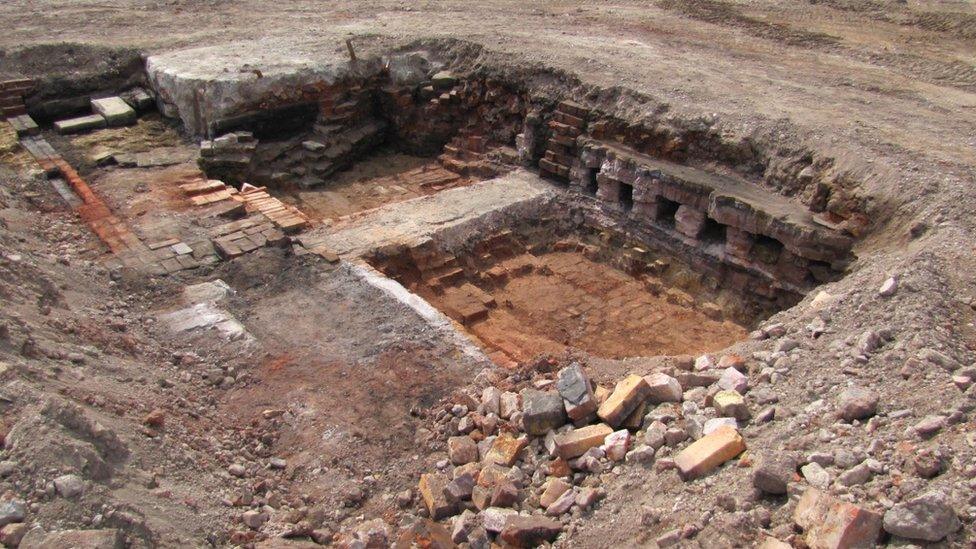
The recent dig at Hollis Croft in Sheffield has uncovered an early furnace
A glimpse of a city's steel-making past has been unearthed at two archaeological sites.
The sites are on view for the first time on Friday and show the heritage of Sheffield's steel industry.
Digs at the Hollis Croft site and the previously excavated former Titanic Works uncovered remains of the industry prior to 1850.
Archaeologist Milica Rajic said: "You can see the driving force for Britain's industrial revolution."
Live updates and more stories from Yorkshire
The change from a farming economy to one dominated by industry and manufacturing began in Britain in the 18th century, driven mainly by the use of materials like iron and steel.
And Sheffield was well placed to prosper with a combination of local iron, coal and water power.
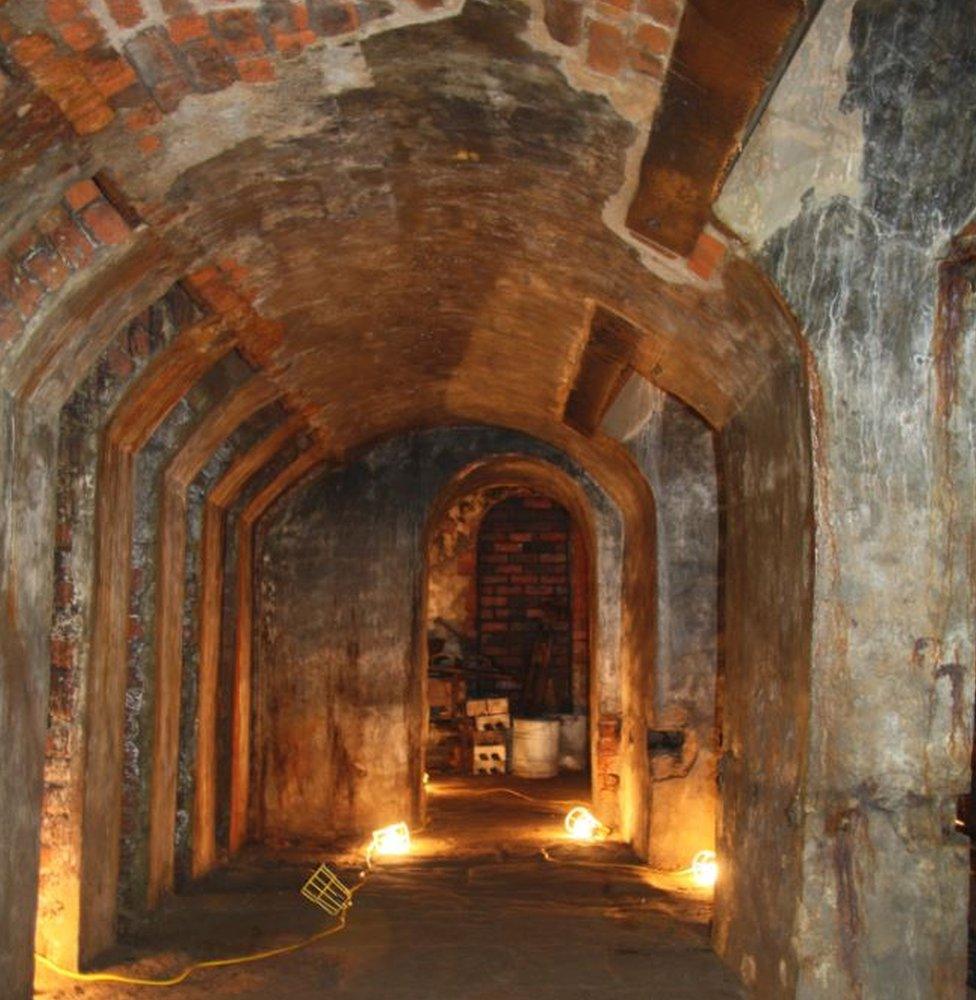
The Titanic Works with its well-preserved crucible furnaces that were invented in Sheffield.
Ms Rajic said: "Its topography and resources - like the River Don and its tributaries and the city's hills and valleys - helped it play a major role in steel."
The first mention of the area's cutlery trade was as far back as the 1490s, she said.
Open day
At its height 150,000 people once worked in the Don Valley between Sheffield and Rotherham valley in a succession of steelworks.
The Hollis Croft site and the Titanic Works, with three well-preserved cellars of crucible furnaces, can be toured as part of an archaeological open day.
The remains of a cementation furnace recently uncovered at Hollis Croft can be seen. This was used to convert iron into blister steel and was an earlier technology than the crucible furnace.
Developed in Sheffield, Crucible furnaces played a "local but very important part in the industrial revolution", said Ms Rajic of Wessex Archaeology, a heritage body and educational charity based in Sheffield.
- Published17 June 2016
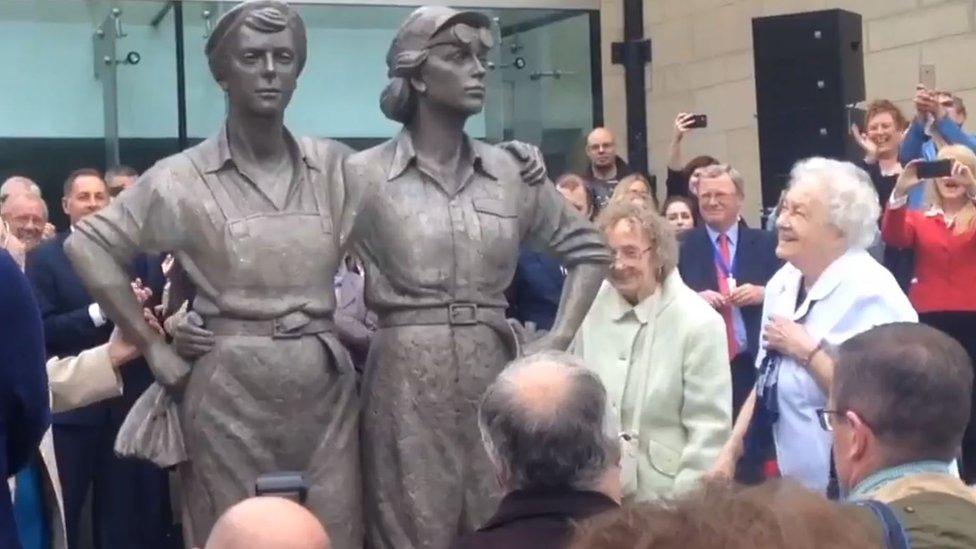
- Published22 May 2016
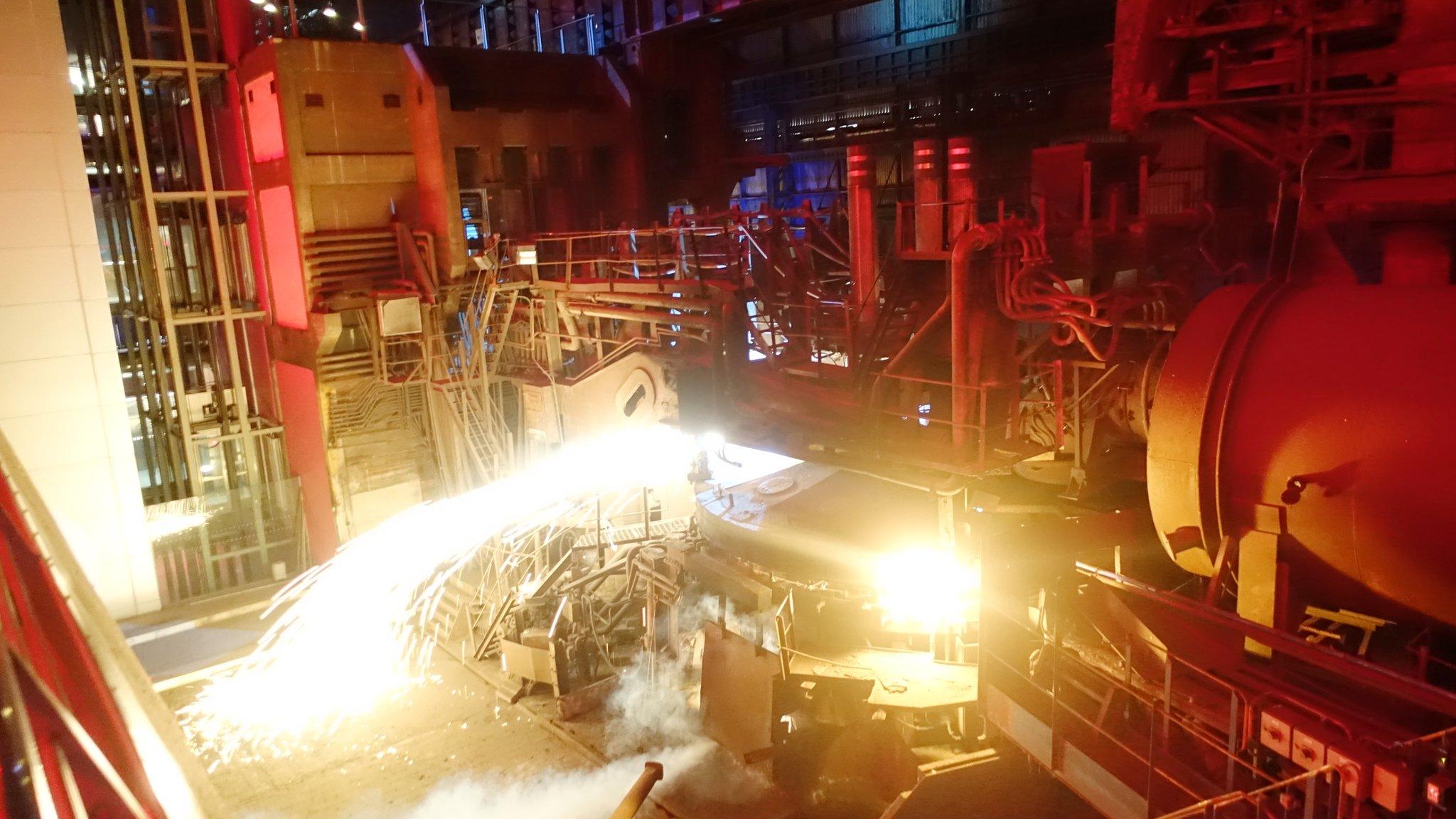
- Published30 March 2016
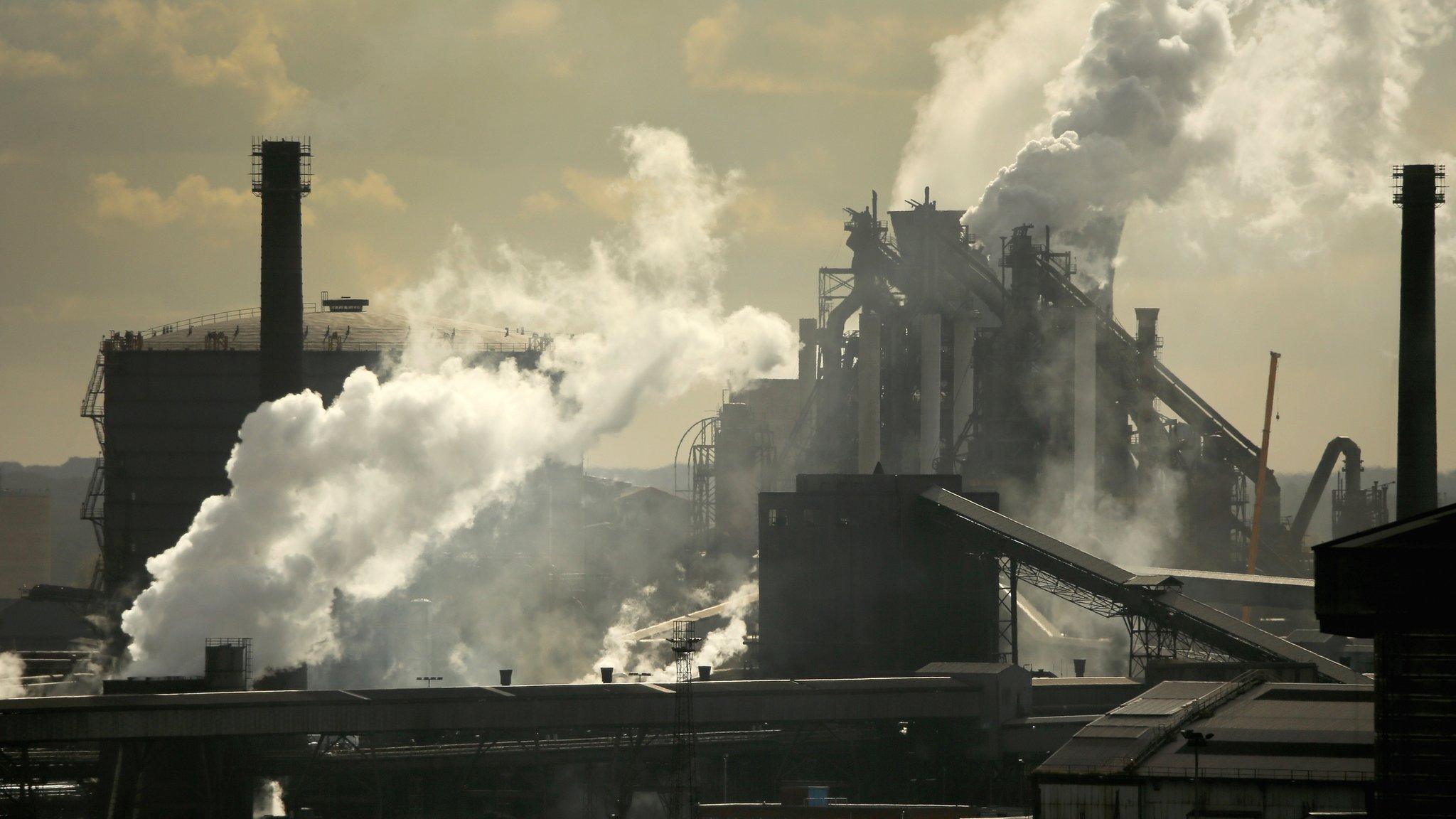
- Published21 November 2015
